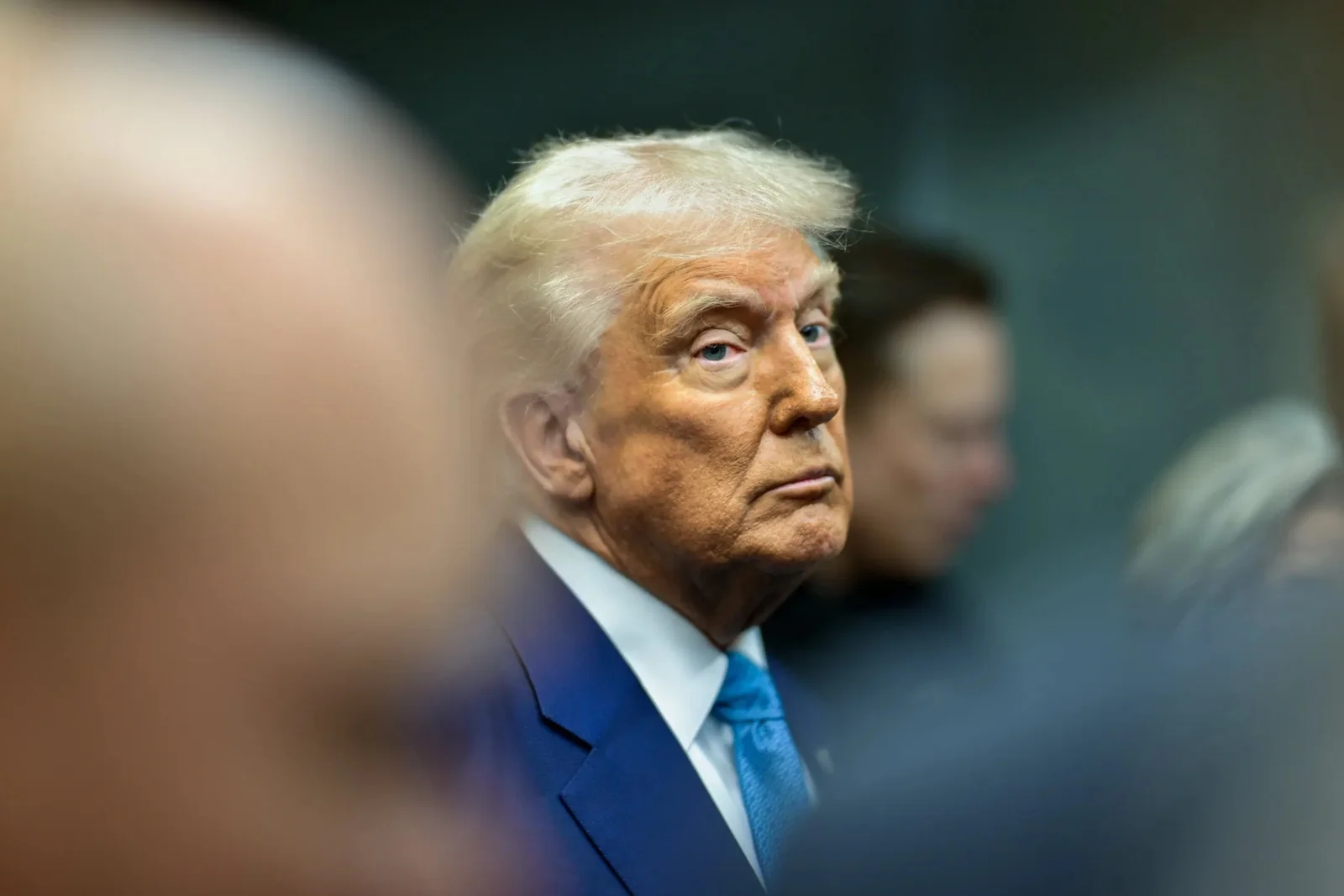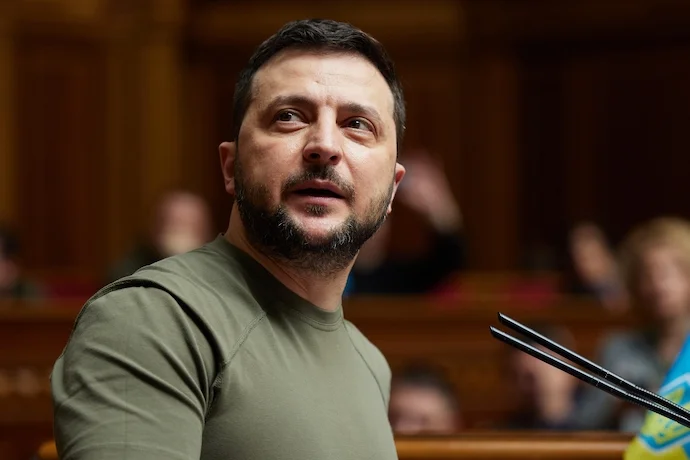
Will Trump’s ‘Come to Jesus Moment’ be Enough to Save Ukraine?
President Donald Trump’s evolving stance on Ukraine may prove to be a geopolitical inflection point—one that could determine the fate of not just Ukraine, but the broader liberal order. His administration’s recent shift toward increased military support for Kyiv, paired with sharper warnings to Moscow, signals a newfound recognition in Washington: that defending Ukraine is not merely about one country’s sovereignty, but about the defense of democracy itself. The U.S. airstrikes on Iranian nuclear sites earlier this year underscore a growing willingness to confront authoritarian regimes directly. That message, now extended to Russia, has the potential to decisively alter the course of the war.
Those Iranian strikes were not only symbolic—they were instructive. U.S. forces penetrated advanced Iranian air defenses, many of them Russian-made, laying bare the shortcomings of Moscow’s much-vaunted military tech. What had long been promoted as a peer-level arsenal now looks deeply vulnerable. That revelation provides the Trump administration with a strategic opening: equipping Ukraine with superior Western weapons to tilt the battlefield dramatically in Kyiv’s favor—and to reinforce the idea that Russian hardware cannot stand against American engineering.
Trump’s repositioning comes at a critical moment. Fourteen 30,000-pound bunker-busters rained down on Iranian facilities like Natanz and Fordow with surgical precision, projecting U.S. resolve far beyond Tehran. The ripple effect reached Moscow. Until then, both the Biden and Trump administrations had approached Putin’s war in Ukraine with caution, wary of escalating tensions. But the Iran operation effectively shattered that playbook, proving that forceful action can be calibrated—and effective—without triggering global chaos.
If the goal is to secure Europe’s democratic future and protect the postwar international order, Putin cannot be permitted to walk away from this war with any semblance of victory. His long record of repression—Grozny, Syria, Crimea, Donbass—reveals a pattern of impunity that undermines every norm the West claims to uphold. A win for Putin would be a win for coercive revisionism, legitimizing brute force over diplomacy, and encouraging other strongmen to follow suit.

Trump’s realization—albeit delayed—that Putin has no real interest in diplomacy marks a turning point. After returning to the White House in January, Trump initially clung to the belief that personal rapport with Putin might yield a ceasefire. In February, he floated a peace proposal that bore Moscow’s fingerprints: Ukrainian recognition of Crimea and occupied eastern territories as Russian, plus a formal guarantee that Kyiv would never join NATO. Trump pressed President Volodymyr Zelensky to consider it. He even reassured British Prime Minister Sir Keir Starmer: “I think he’ll keep his word,” he said of Putin. “I’ve known him for a long time now, and I think he will. I don’t believe he’s going to violate his word.”
That illusion, however, has unraveled. Earlier this month, Trump announced a new strategy: dramatically increasing military aid to Ukraine and giving Moscow a 50-day ultimatum to engage in serious peace talks—or face sweeping sanctions and tariffs.
The policy shift includes billions in advanced U.S. weapons, with NATO allies sharing the cost. It’s a hard break from previous reluctance and a signal that Trump finally recognizes Putin’s obstinacy for what it is. While Trump has still withheld authorization for long-range missile strikes inside Russia, the deployment of Patriot systems and other defensive technologies represents the most robust U.S. backing Kyiv has received since the war began.
Putin’s inflexibility remains the conflict’s immovable center of gravity. Despite sanctions and battlefield losses, he remains committed to maximalist goals: restoring Russian imperial prestige and neutralizing Ukraine as a Western ally. Inside the Kremlin, the prevailing view is that time is on Russia’s side—that the West’s patience will falter before Russia’s grip loosens. Putin has brushed off peace overtures, even Trump’s, unless they validate his preferred narrative: that Ukraine must be “denazified,” disarmed, and neutral.
The logic isn’t merely ideological—it’s strategic. By dragging out the war, Putin aims to erode Ukrainian morale and sap Western unity. The longer the conflict drags on, the more he hopes economic fatigue and political turnover in Europe and the U.S. will soften support for Kyiv. In his view, even slow territorial gains help build leverage.
Trump’s initial reluctance to fully confront Putin stemmed from a mix of personal admiration and political instinct. Throughout his political rise, Trump has praised strongman figures and fashioned himself as a transactional dealmaker. In early 2025, he still viewed Putin as a leader with whom a grand bargain could be struck—one that would resolve the war quickly and allow Trump to refocus domestically.
That mindset aligned with his “America First” philosophy, which has always prioritized avoiding foreign entanglements. Skeptical of open-ended commitments, Trump pushed NATO to increase its contributions and was hesitant to deepen U.S. involvement for fear of economic blowback or nuclear escalation.
That caution translated into policy: tepid sanctions on Russian energy, reluctance to send high-end weaponry, and an overarching desire to reach a deal rather than enforce accountability. But Putin’s defiance—his refusal to meet Trump’s deadline or temper his offensives—forced a reckoning. Frustration gave way to confrontation.
Behind closed doors, Trump has reportedly encouraged deeper strikes into Russian territory, signaling an openness to a more punishing strategy, even if he remains publicly restrained. The contradiction reveals the balancing act he’s attempting: punishing Russia enough to shift the war’s momentum, but not so much as to foreclose diplomatic exit ramps.
Yet that balancing act comes at a cost. Trump’s earlier hesitance allowed atrocities to go unchecked and gave Putin precious time to regroup. It exemplifies the core tension between isolationist instincts and the demands of global leadership. If the U.S. wants to preserve a world in which borders matter and democracy is protected, then aggressors like Putin must be held to account.
For Ukraine to truly win, Trump’s administration must go beyond limited deadlines and conditional aid. It must demonstrate unwavering resolve—to punish, to isolate, and to arm. Only then can Kyiv reclaim its territory, deter future invasions, and reaffirm that the age of conquest has no place in the 21st century.
